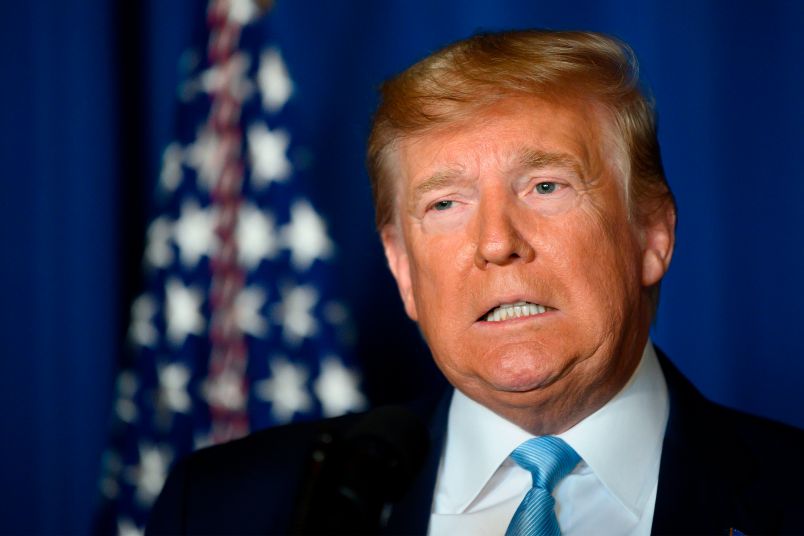President Trump’s dissatisfaction with media coverage when he halted an airstrike against Iran last year reportedly influenced his authorization of the strike that killed top Iranian military official Qasem Soleimani Thursday night.
According to a Washington Post report Friday night, after Trump was told at Mar-a-Lago that Soleimani was going to Baghdad — which senior officials viewed as a way to taunt the U.S. — calls between national security principals were set up by Vice President Mike Pence throughout the week after initial plans were made Sunday to kill Soleimani, a senior administration official told the Post.
The Post reported that officials then reminded Trump that he failed to respond after Iranians mined ships, downed a U.S. drone and allegedly attacked a Saudi oil facility last year. The officials argued that the time is ripe to act now to send Iranians a message that they can’t “get by with anything.”
“The argument is, if you don’t ever respond to them, they think they can get by with anything,” one White House official told the Post.
Officials told the Post that Trump was also compelled to authorize the Soleimani strike due to what he viewed as negative coverage that ensued after his decision last year to call off the airstrike targeting Iran. Additionally, Trump held frustration over the details of his internal deliberations leaking out — which he felt made him looked weak, according to the officials who spoke with the Post.
Lawmakers and aides who have spoken to Trump told the Post that the President’s fixation on Benghazi and the Obama administration’s response to it also played a role into his decision.
Sen. Lindsey Graham (R-SC) told the Post in an interview that when he went to Mar-a-Lago on Monday, he could tell that “Benghazi has loomed large on his mind.”
Although Graham told the Post that there was no clear plan that Trump was ready to kill Soleimani during his Monday visit to Mar-a-Lago, the Trump ally said that “it was on Trump’s mind” given the President’s concern that Iran was “going to hit us again.”
“He was more thinking out loud, but he was determined to do something to protect Americans,” Graham told the Post. “Killing the contractor really changed the equation. He was saying, ‘This guy is a bad guy, he’s up to no good, we have to do something.’”
Graham also told the Post that Trump said the job is “a tough business.”
“I said, ‘Yeah, it’s a tough business, Mr. President,’ ” Graham said, according to the Post.
Read the Washington Post’s report here.



